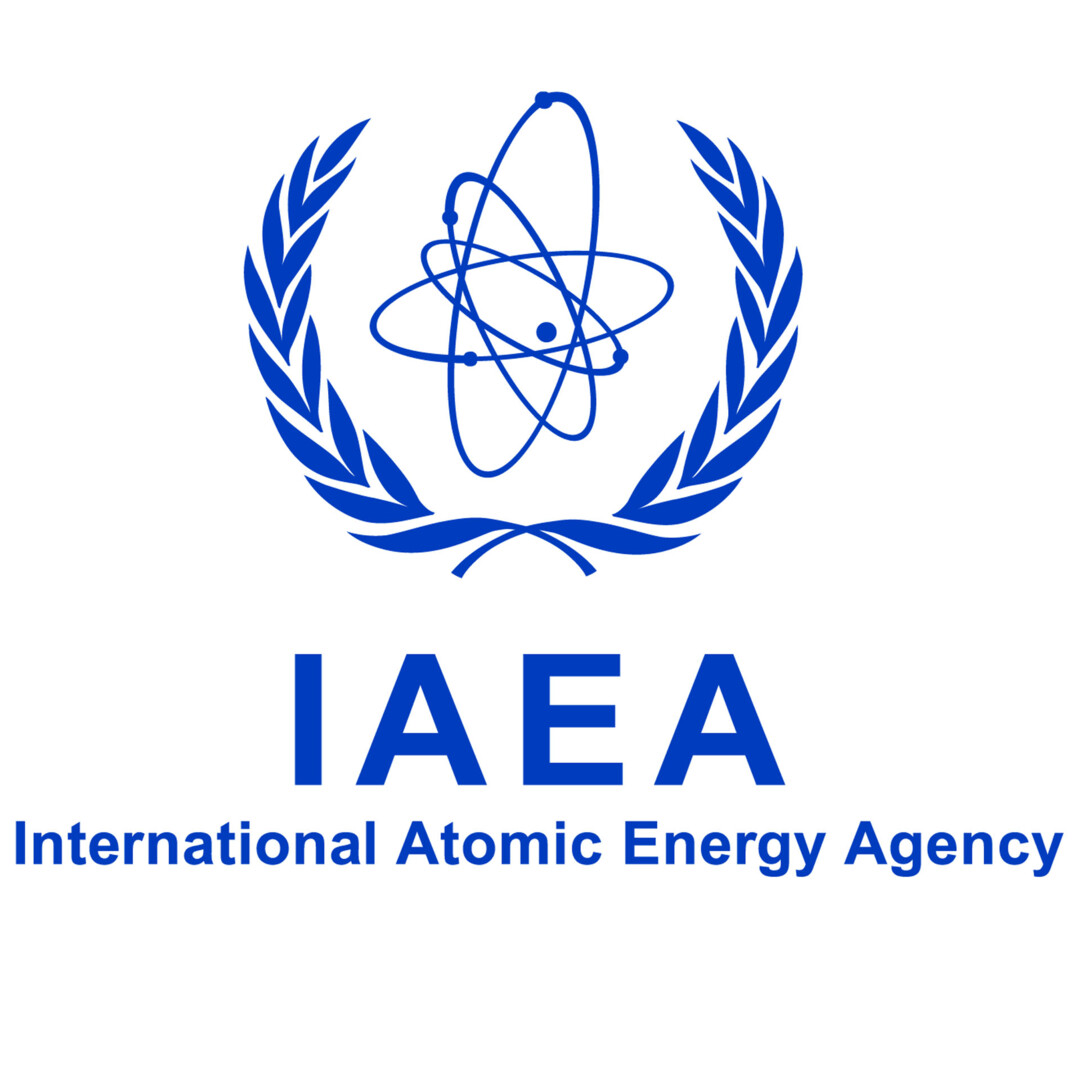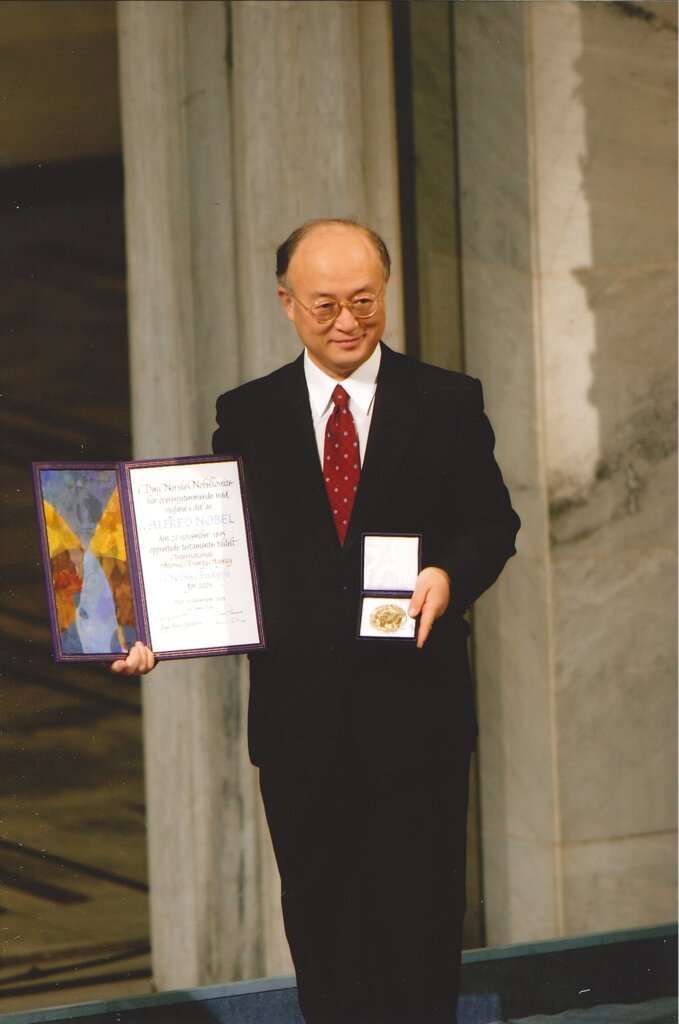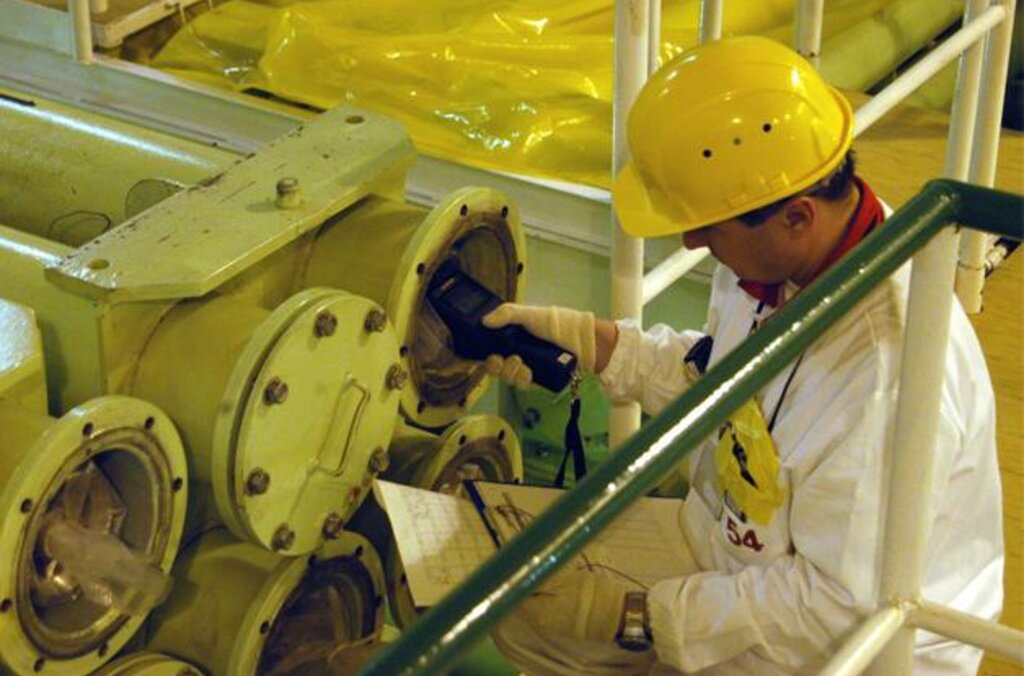International Atomic Energy Agency
Speed read
The International Atomic Energy Agency (IAEA) was awarded the Nobel Peace Prize, jointly with Mohamed ElBaradei, for their efforts to prevent nuclear energy from being used for military purposes and to ensure that nuclear energy for peaceful purposes is used in the safest possible way.

Full name: International Atomic Energy Agency (IAEA)
Native name: International Atomic Energy Agency
Founded: 1957, Vienna, Austria
Date awarded: 7 October 2005
The threat of nuclear arms
The 2005 Nobel Peace Prize was co-awarded to the International Atomic Energy Agency (IAEA) and its Director General Mohamed ElBaradei. An organisation under the umbrella of the United Nations, the IAEA was created in 1957 on the initiative of US President Eisenhower in response to the discovery of nuclear energy and the deployment of atom bombs in Japan in 1945, which brutally illustrated the consequences of nuclear energy used for military purposes. The IAEA seeks to ensure the use of nuclear energy for peaceful purposes and to prevent its use for military aims. The IAEA has been charged with establishing an international verification system for fissile material to prevent its military use and to strengthen efforts to achieve peace and cooperation. The IAEA also works to promote peaceful nuclear research.
"The Prize is an encouragement to not lose heart and to not lose faith of a world at peace, free of nuclear weapons."
Mohamed ElBaradei, 7 October 2005.

Watchdog
In 1970, the Treaty on the Non-Proliferation of Nuclear Weapons entered into force, prohibiting the covert production of nuclear arms and strengthening the role of the IAEA in implementing safeguards. The treaty stipulates disarmament in countries that possess nuclear weapons and forbids acquisition in countries that do not. The goal is to achieve complete global disarmament. Under the terms of the treaty, nuclear states have only a temporary right to possess nuclear arms. For decades, and using limited resources, the IAEA has sought to expose violations of the treaty.
Who are the parties to the treaty?
To date all countries of the world have approved the treaty, with the exception of India, Pakistan and Israel. The nuclear powers USA, United Kingdom, France, China and Russia are parties to the treaty. These states have been granted a temporary right to possess nuclear weapons. As an inspection authority working on behalf of the world at large, the IAEA monitors nuclear-related activities in all countries of the world, except for the nuclear powers and the countries which are not party to the Treaty on the Non-Proliferation of Nuclear Weapons.

The IAEA and Iran
Although Iran has signed the Nuclear Non-Proliferation Treaty, the IAEA has uncovered several violations of its safeguards agreement with that country. Iran’s plans for the production of nuclear energy may also be excessive in relation to purely civilian needs. However, Iran denies allegations that it has a covert nuclear weapons programme. The case has been given top priority by the IAEA, which has placed its foremost experts and measuring equipment in Iran. Developments are being closely followed, not least by the USA. Iran can be seen as a test of the real strength of the international verification system.
The IAEA and the Democratic People’s Republic of Korea (DPRK)
In January 2003, the DPRK announced that it wished to withdraw from the NPT. At the same time the IAEA’s inspectors were forced to leave the country, making it impossible to maintain control activities relating to DPRK’s nuclear programme. Over two years later, in September 2005, negotiations between DPRK, USA, Japan, China, Republic of Korea and Russia resulted in a potential breakthrough. The DPRK will agree to become a party to the NPT. The implementation of this agreement, however, may prove to be quite challenging, and the negotiations have not yet concluded.
Disclaimer: Every effort has been made by the publisher to credit organisations and individuals with regard to the supply of photographs. Please notify the publishers regarding corrections.
Nobel Prizes and laureates
Six prizes were awarded for achievements that have conferred the greatest benefit to humankind. The 12 laureates' work and discoveries range from proteins' structures and machine learning to fighting for a world free of nuclear weapons.
See them all presented here.
